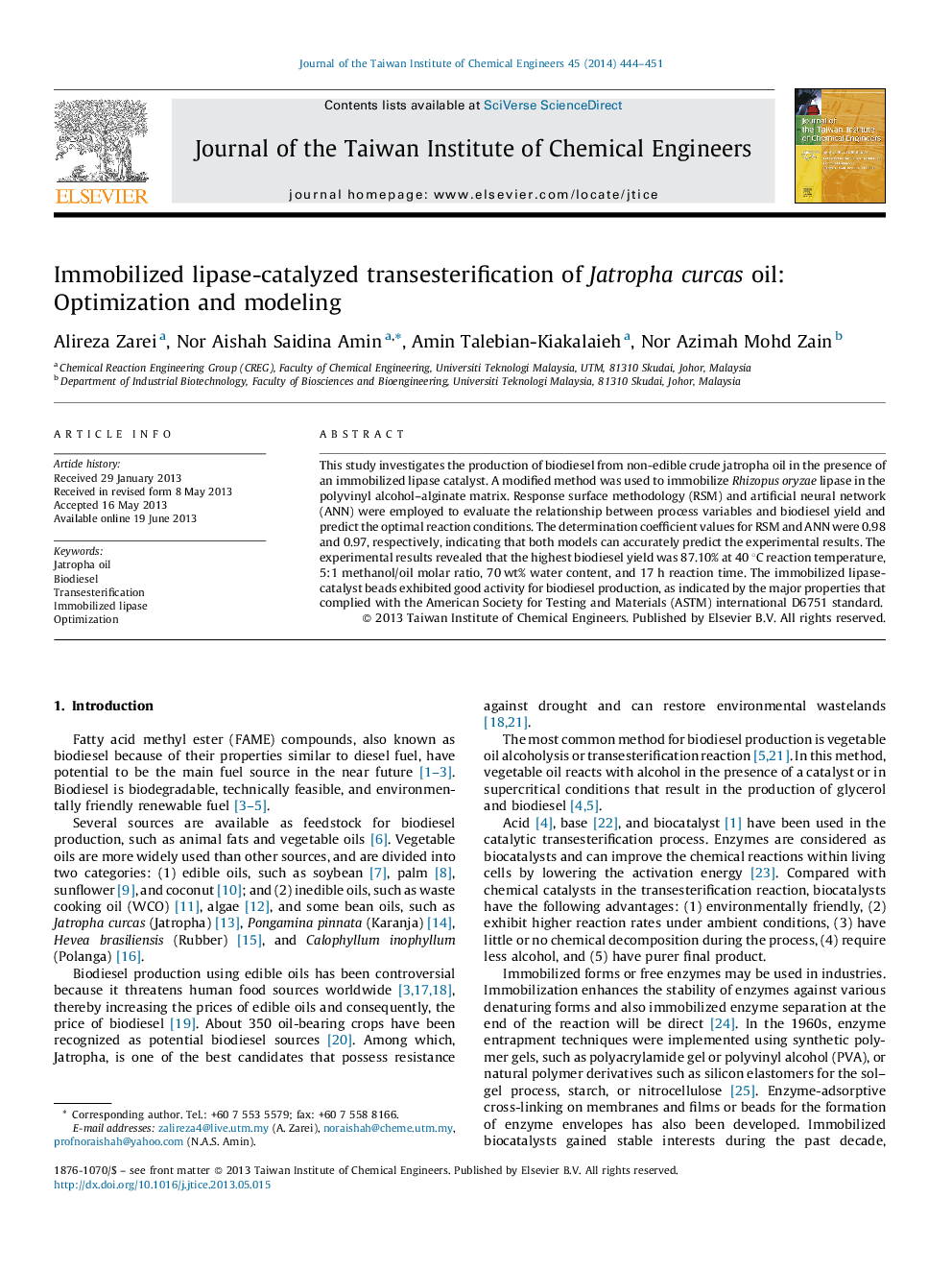| Article ID | Journal | Published Year | Pages | File Type |
|---|---|---|---|---|
| 691382 | Journal of the Taiwan Institute of Chemical Engineers | 2014 | 8 Pages |
•The lipase was immobilized and employed for converting jatropha oil to biodiesel.•Biodiesel was produced under moderate conditions.•Optimization and modeling of the process was performed.•Influence of process variables on FAME was studied.•Biodiesel properties complied with ASTM D6751 standards.
This study investigates the production of biodiesel from non-edible crude jatropha oil in the presence of an immobilized lipase catalyst. A modified method was used to immobilize Rhizopus oryzae lipase in the polyvinyl alcohol–alginate matrix. Response surface methodology (RSM) and artificial neural network (ANN) were employed to evaluate the relationship between process variables and biodiesel yield and predict the optimal reaction conditions. The determination coefficient values for RSM and ANN were 0.98 and 0.97, respectively, indicating that both models can accurately predict the experimental results. The experimental results revealed that the highest biodiesel yield was 87.10% at 40 °C reaction temperature, 5:1 methanol/oil molar ratio, 70 wt% water content, and 17 h reaction time. The immobilized lipase-catalyst beads exhibited good activity for biodiesel production, as indicated by the major properties that complied with the American Society for Testing and Materials (ASTM) international D6751 standard.
